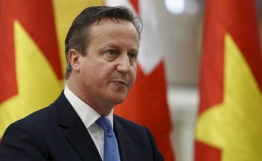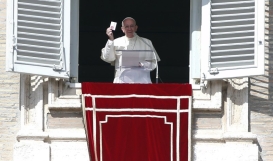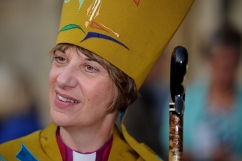A leaked report has revealed that extremist literature is being routinely given out to inmates by Muslim chaplains in UK prisons.
The Times today reported that a review commissioned by Justice Secretary Michael Gove found Islamist pamphlets and CDs and homophobic and misogynistic literature in more than 10 prisons in November.
Materials that preached "contempt for basic British values" and encouraged the murder of apostates (Muslims who leave or reject Islam) were kept on bookshelves in chaplaincy rooms, the report said. They were freely available for inmates to pick up.
Chaplains at a number of prisons also reportedly encouraged inmates to raise money for Islamic charities with links to terrorism.
The review said that many Muslim prison chaplains were not equipped to deal with radicalisation, "sometimes because they lacked the capability but often because they didn't have the will".
According to The Times, the review found that "lax controls and failings at a senior level of the prison service had created a breeding ground for Islamist radicalisation."
The leak follows reports last month that Ahtsham Ali, the Muslim advisor to the National Offender Management Service (NOMS), oversaw the appointment of around 140 prison imams who studied a fundamentalist interpretation of Sunni Islam.
Members of the Deobandi sect are taught a very conservative ideology. According to The Times, the movement's leading seminary in Britain teaches contempt for "disbelievers", and urges followers not to try to integrate into British society.
However, chief executive of NOMS, Michael Spurr, has defended the movement. In a letter to governors, he said Ofsted believes the seminary to promote "fundamental British values such as democracy, individual liberty and mutual respect and tolerance for those of different faiths".
At the start of 2016, there were 12,328 Muslim prisoners in England and Wales, 1,000 of whom were deemed vulnerable to radicalisation.

















